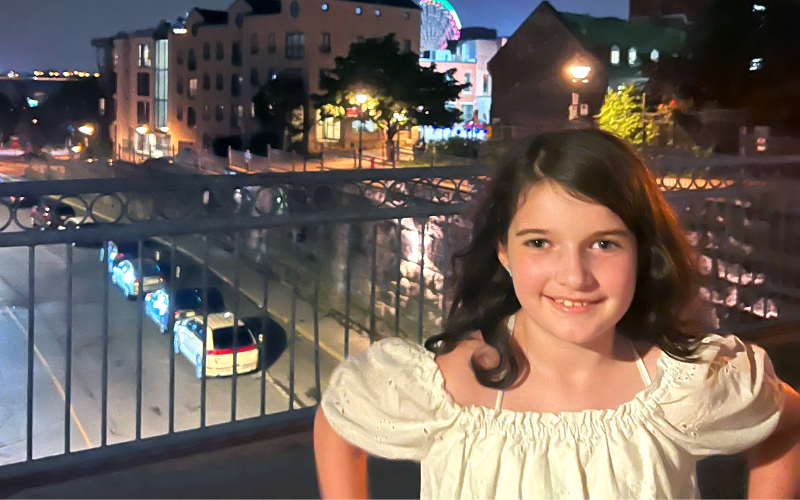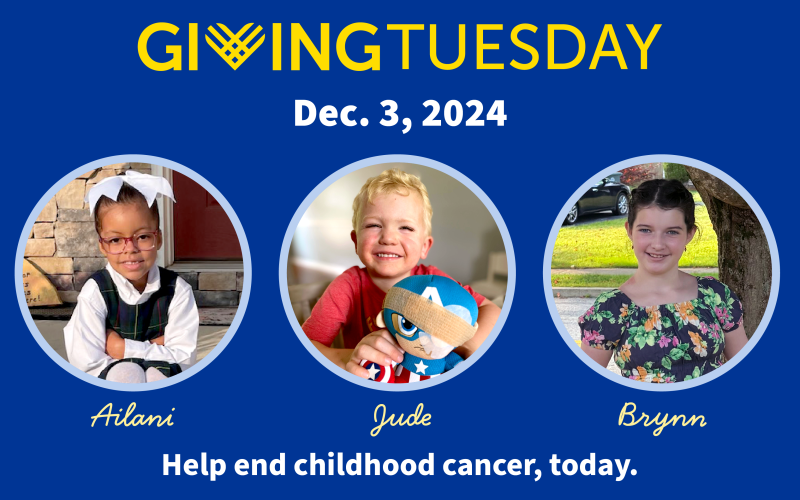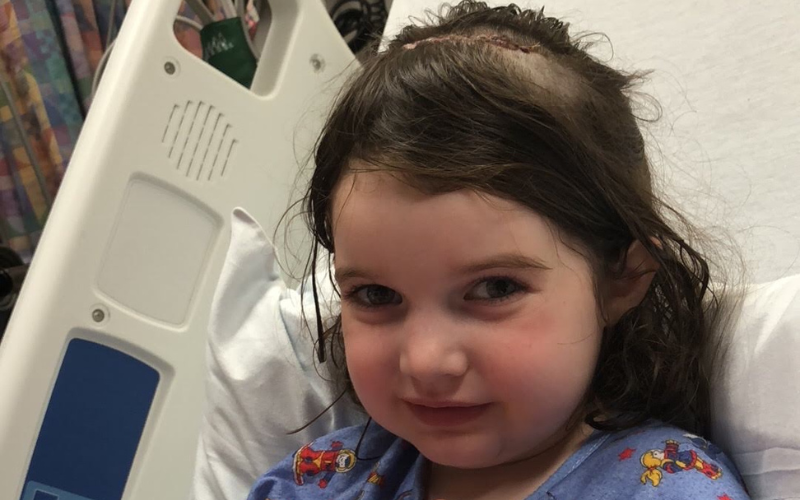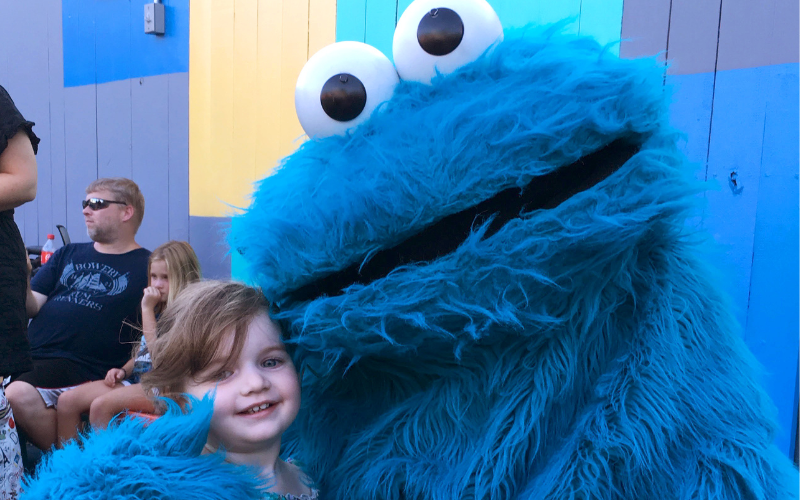By: Trish Adkins
Brynn and her family were on a much-anticipated mini-break to Sesame Place, a theme park in suburban Philadelphia. They made the five-hour drive from Rhode Island earlier in the week, excited for their annual tradition after a hard year. Brynn had been diagnosed with a brain tumor called ependymoma, but was now finished with treatment and the family was back to their regular lives.
Their first day in the theme park was rainy. Brynn, who was just 4 years old, spent most of the day in the stroller, tired and uninterested in the parades. Her mom, Jessica, thought it was disappointing at the time but understandable: gloomy weather makes everyone a little sleepy.
The next day, while waiting to grab something from the hotel breakfast buffet, Brynn threw-up all over the floor. “I got her out of there,” recalled Jessica who left her husband and son at the hotel and drove Brynn to the emergency room. The moment triggered all the memories of Brynn’s symptoms before her brain tumor diagnosis – throwing up at odd times and without reason, fatigue, and atypical body movements. Jessica hoped for the same thing that she had hoped for the year before: that this was just an upset stomach and all the extra naps that happened the day before were nothing abnormal.
Brynn’s scans six weeks earlier showed no evidence of disease. “It must just be nerves,” Jessica recalled thinking. But, still in the back of her head was the very insistent knowledge that none of this was normal. Even before their trip, Brynn kept wanting to be carried. She hadn’t been eating as much, and in her dance class, she missed her hand while clapping. 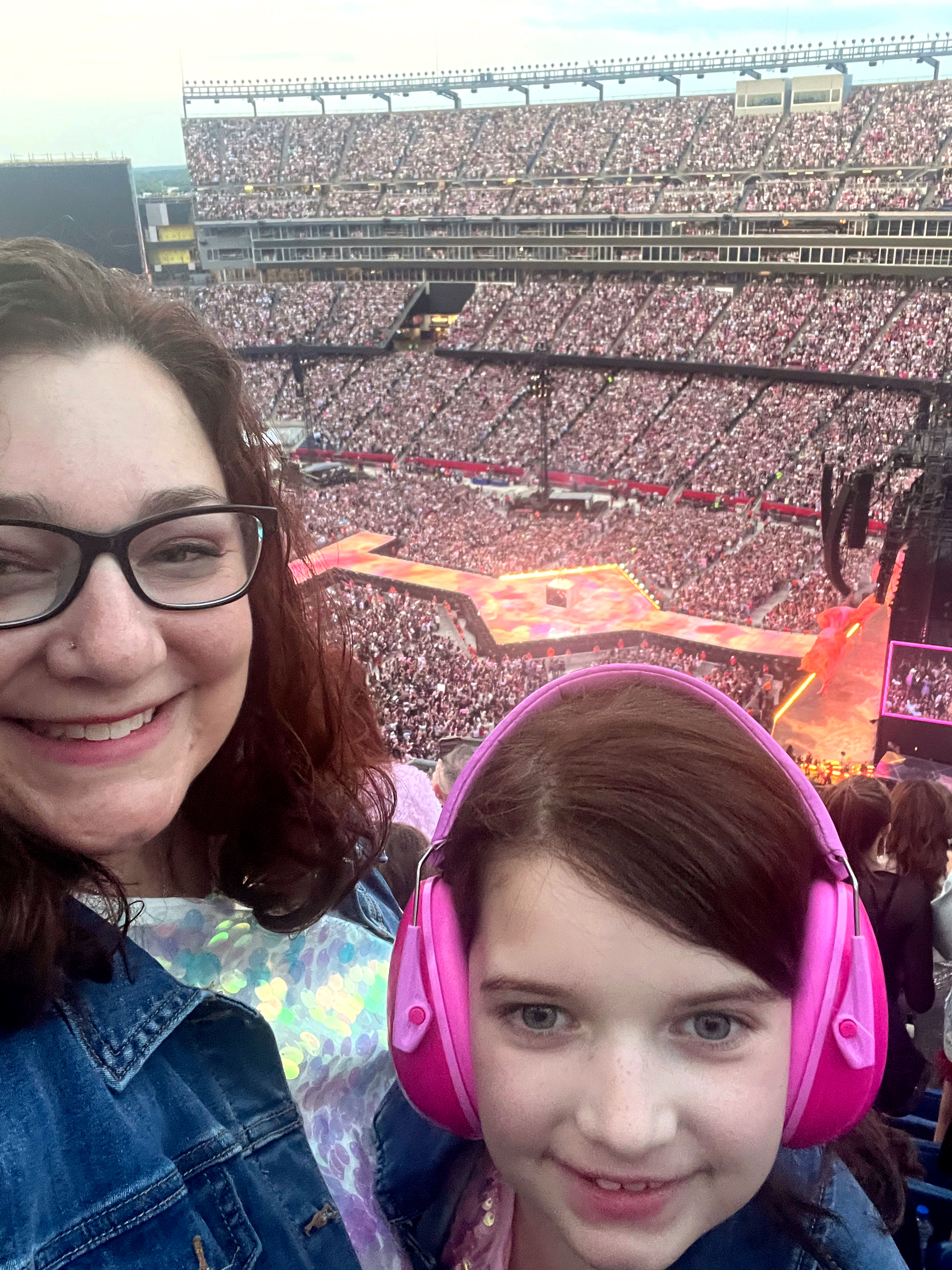
“As a parent in this world, you get to be hyper vigilant,” said Jessica.
At the emergency room, staff wanted to send Brynn home, dismissing Jessica’s concerns. “I was insistent,” said Jessica. Brynn threw up a few more times and doctors agreed to do a CT scan.
That scan showed Jessica’s worst fear.
Brynn’s tumor was back.
When you meet Brynn today, you’d have no idea the things she’s endured. She loves Taylor Swift, and is quick to chide her mother’s mention of her old love, Paw Patrol, with a very endearing tween eye roll. She looks like how you’d expect a 10-year-old girl to look: healthy and bright-eyed – a glimmer of mischief with a side of sweetness.
“She’s blossomed,” said Jessica. Brynn’s initial diagnosis, like most childhood cancer diagnoses, happened out of the blue. One day, she was a typical toddler with what seemed like an upset stomach or a virus. And then the next, she was a patient on the neuro-oncology floor at a children’s hospital. Brynn was just 2 years old when surgeons shaved her head and removed a grapefruit-sized tumor during an agonizing 10-hour surgery. Even now, eight years later, Jessica has a hard time talking about Brynn’s diagnosis. “It was surreal. It was scary to hand your 2-year-old over to a stranger,” said Jessica. “But Brynn woke up asking for Paw Patrol.” Jessica apologized for her tears – nodded at Brynn, who also seemed upset.
“I just wish you wouldn’t mention Paw Patrol, again,” Brynn said.
Brynn doesn’t remember anything from this time, but Jessica does: the apnea after surgery that landed Brynn on a ventilator, the 33 different princess dresses Brynn wore to 33 radiation treatments, the endless specialist visits, the constant “scanxiety” before routine MRIs, and the desperate hope that her daughter would survive.
Brynn finished radiation and rang the celebratory bell. Life got back to normal: the family moved, went to Disney World, and Brynn started preschool. She took her first dance class.
And then, the relapse, which took the family by surprise. Brynn stayed at the hospital in Philadelphia for surgery to remove the new tumor. Her tumor type, ependymoma, is the third most common type of pediatric brain tumor. Mainstays of treatment include surgery and radiation at diagnosis. At relapse, there isn’t a standard treatment plan. “The words are not as optimistic. They give you statistics that you don’t necessarily want to know,” said Jessica. The family left Philadelphia without a clear plan. At their home hospital in Rhode Island, the oncology team looked at her scans and didn’t offer much hope.
“They recommended we go home and enjoy the holidays and be together and make memories,” said Jessica. The family got a second opinion and Brynn went back for 33 more rounds of radiation. Her parents, however, wanted a better plan – ependymoma tends to relapse, and with each relapse the chances of a cure reduce.
Jessica was active in an ependymoma parent community on Facebook and through that network, she found a clinical trial for kids with relapsed brain tumors down in Augusta, Georgia. That trial, led by Alex’s Lemonade Stand Foundation (ALSF)-funded researcher Dr. Ted Johnson, used a targeted immunotherapy drug delivered in a pill form in combination with chemotherapy. Brynn qualified for the trial, but the only catch: Augusta was far away from Rhode Island.
Luckily the ASLF Travel For Care program was there to support Brynn’s travel to the treatment that would ultimately cure her. “We wouldn’t have been able to travel without it,” said Jessica. “I can’t even fathom how we could have found a way without it.”
In June 2021, Brynn finished treatment, cancer-free, thanks to support the family received to travel to treatment and the research funded by ALSF.
“Alex’s Lemonade Stand Foundation is so necessary because it funds these amazing, brilliant scientists, who work hard to find treatments for kids like Brynn,” said Jessica.
This summer, Brynn saw Taylor Swift in concert with her mom, making a memory she will carry with her always. Her favorite song of the night was “Cruel Summer.” Brynn’s favorite song of all time, “Getaway Car,” didn’t make the set list, but that just gives Brynn more things to look forward to as she lives life after cancer.
“Now life is horseback riding and playing basketball and dancing and going to Taylor Swift concerts,” said Jessica. “It’s better than before,” added Brynn.
This Giving Tuesday, you can help families with children like Brynn who are fighting right now to get lifesaving treatments. Donate today!

